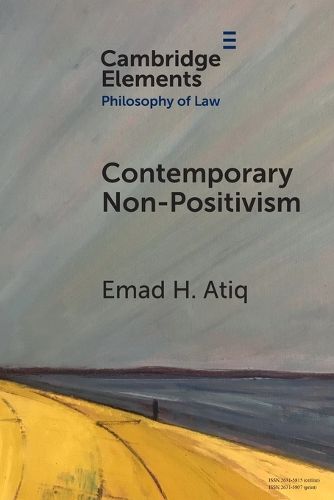Readings Newsletter
Become a Readings Member to make your shopping experience even easier.
Sign in or sign up for free!
You’re not far away from qualifying for FREE standard shipping within Australia
You’ve qualified for FREE standard shipping within Australia
The cart is loading…






This Element defends and clarifies the thesis that the legality of a system of rules depends on its moral features. Positivists who deny this dependence struggle to explain: (1) the traditional classification of moral norms as a form of a priori law; (2) judicial reliance on moral norms in legal discovery; (3) persistent theoretical disagreement about intra-systemic, law-determining facts; (4) why radically arbitrary or immoral schemes of social organization represent borderline cases of law; and (5) why law, like other artifacts, can be evaluated in a kind-relative sense ("as law"). Meanwhile, traditional versions of non-positivism overstate the dependence going further than the desiderata warrant. A moderate theory is formulated: law is an artifact whose existence depends on adequately performing an essentially normative function. The theory's justification lies in its explanatory power: a comparison with other "value-driven" artifacts, such as artworks, proves vital for understanding legal language, reasoning, and practice.
$9.00 standard shipping within Australia
FREE standard shipping within Australia for orders over $100.00
Express & International shipping calculated at checkout
This Element defends and clarifies the thesis that the legality of a system of rules depends on its moral features. Positivists who deny this dependence struggle to explain: (1) the traditional classification of moral norms as a form of a priori law; (2) judicial reliance on moral norms in legal discovery; (3) persistent theoretical disagreement about intra-systemic, law-determining facts; (4) why radically arbitrary or immoral schemes of social organization represent borderline cases of law; and (5) why law, like other artifacts, can be evaluated in a kind-relative sense ("as law"). Meanwhile, traditional versions of non-positivism overstate the dependence going further than the desiderata warrant. A moderate theory is formulated: law is an artifact whose existence depends on adequately performing an essentially normative function. The theory's justification lies in its explanatory power: a comparison with other "value-driven" artifacts, such as artworks, proves vital for understanding legal language, reasoning, and practice.